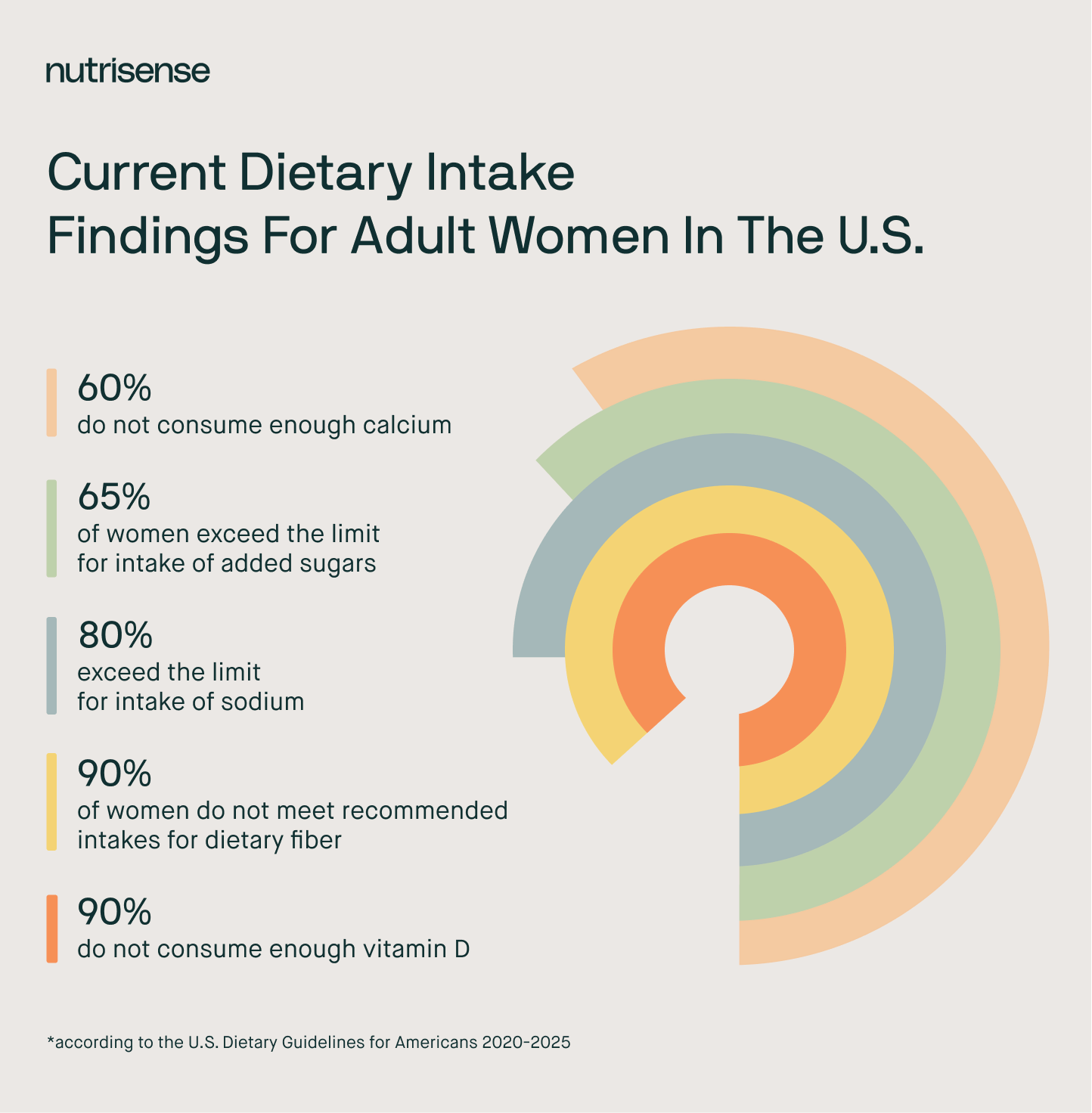Women’s health can be a little more complex than you might think. There are many mental and physical health conditions that disproportionately affect women, including breast cancer, insomnia, osteoarthritis, stroke, depression,and anxiety.
There are also hormonal and reproductive concerns that affect women, such as premenstrual syndrome and menopause. And unfortunately, all of these issues can also affect women differently as they age.
Luckily, there are a few precautionary lifestyle changes you can implement as a woman to help you prioritize your health. Here are eight tips that can help you take control of your health and make steps toward healthy living.
1) Prioritize Healthy Sleep Habits

Getting quality sleep is important for your mental and physical health. There is a wide body of research that links a chronic lack of sleep with an increased risk of many serious health conditions.
Lack of sleep affects psychological wellbeing too: it can cause changes in mood and exacerbate stress. On the flip side, getting enough sleep lowers your risk for these serious health problems, and may help you
- Stay at a healthy weight
- Get sick less often
- Think more clearly
- Make better decisions
- Reduce stress
- Improve your mood
Research shows that sleep problems, such as insomnia and restless leg syndrome, affect more women than men. In fact, more than one in four women in the U.S. experience insomnia, which is the inability to fall asleep and stay asleep.
This may be because women experience hormonal changes during their menstrual cycle, pregnancy, and menopause that can affect how well they sleep.
2) Get Appropriate Amounts of Physical Activity

According to the CDC, more than 60 percent of women in the U.S. do not engage in the recommended amount of physical activity. More than 25 percent of U.S. women aren’t active at all. However, too much exercise can sabotage your health goals as well. So it’s all about finding the balance for your unique body.
Getting enough exercise can reduce the risk of conditions such as:
- High blood pressure
- Type 2 diabetes
- Colon cancer
- Heart disease
Appropriate amounts of exercise can help you maintain healthy joints, bones, and muscles, help maintain a healthy body weight, build lean muscle, and reduce body fat. It can even help to reduce anxiety and depression for some people, and may increase life satisfaction and happiness.
Physical activity is anything that gets your body moving, and it doesn’t have to be strenuous to achieve health benefits. The Physical Activity Guidelines for Americans recommend 150 minutes of moderate-intensity physical activities and two days of muscle strengthening activity per week.
3) Maintain a Nutritious Diet
The Dietary Guidelines for Americans emphasizes a diet rich in nutrient-dense foods, like vegetables and whole fruits, whole grains, and lean proteins. They also suggest limiting processed foods and foods high in added sugar.
Avoiding or limiting processed foods and foods with added sugars while incorporating more nutrient-dense foods can lower your risk of:
- All-cause mortality
- Cardiovascular disease
- Obesity
- Breast cancer
- Colon and rectum cancer
- Type 2 diabetes
Despite these guidelines, studies that observe women’s nutrition have found that:

Diet is especially important for postmenopausal women, who experience rapid bone remodeling and are at a high risk for bone loss and low bone density. An adequate intake of calcium and vitamin D is particularly important for postmenopausal women.
Lower levels of estrogen after menopause can also raise the risk for heart disease, stroke, osteoporosis, and diabetes.

4) Proactively Manage Your Mental Health
Every year, one in five women in the U.S. experience a mental health problem. Women are more likely than men to experience major depression, PTSD, eating disorders, and anxiety disorders.
These conditions can take an extreme mental toll, but affect physical health as well: mental health problems like depression can actually increase your risk of developing chronic illnesses because they can affect your metabolic health, including heart rate, blood circulation, and stress hormones.

There are many techniques you can use to manage mental health problems in your everyday life. The Anxiety and Depression Association of America suggests these tips for managing your mental health at home:
- Practice yoga, listen to music, meditate, or learn relaxation techniques
- Eat healthy, well-balanced meals and limit alcohol and caffeine
- Get good, quality sleep, especially when you’re stressed or anxious
- Exercise daily to feel good and maintain your mental health
- Keep a journal
- Talk to your friends and family when you feel anxious, depressed, or overwhelmed
If you’re struggling with these sorts of mental health issues, consult a healthcare professional or a psychologist you trust for guidance.
5) Take Care of Reproductive Health with Annual Well-Woman Exams

An annual well-woman exam or a wellness visit is an important way to take care of your reproductive health. What happens during your well-woman exam will depend on your age, your sexual history, and your medical history.
These health screenings typically focus on preventative care for women, and include services like:
- Vaccines
- Screening tests (like STD tests or cancer-related tests)
- Physical exams such as a pap smear test
- Education and counseling to help you make informed decisions about your reproductive health
Typically, women should have their first wellness visit around age 13 to 15, where you’ll likely discuss your period and its regularity. At ages 21 to 24, you may start getting Pap smear tests, which look for abnormal cell changes in your cervix.
At ages 25 through 65, you will be advised to take an HPV test every five years, which looks for some types of the virus that may cause cervical cancer. At ages 40 and older, medical professionals recommended getting a mammogram every one to two years.
Scheduling these visits yearly with a doctor, nurse, or gynecologist can help you stay on top of your reproductive health.
7) Uphold Proper Skin Care Practices

Our skin is our largest organ, so it’s important to take care of it. A good skin care routine can help your skin face harsh weather, protect it from UV damage (which can cause skin cancer), reduce acne, and reduce wrinkles.
The huge amount of products available can make it overwhelming for beginners, but skin care routines don’t have to be complicated if you don’t want them to be. Keep it simple by using a gentle cleanser and moisturizer, and make sure to apply sunscreen regularly.
8) Hydrate, Hydrate, Hydrate
Our bodies depend on water to survive, so getting enough is crucial for your health. Getting enough water prevents dehydration, which can cause:
- Unclear thinking
- Changes in mood
- Constipation
- Kidney stones
Staying hydrated also helps your body keep a normal temperature, lubricate and cushion joints, protect your spinal cord and other sensitive tissues, and get rid of waste through urination, perspiration, and bowel movements.


